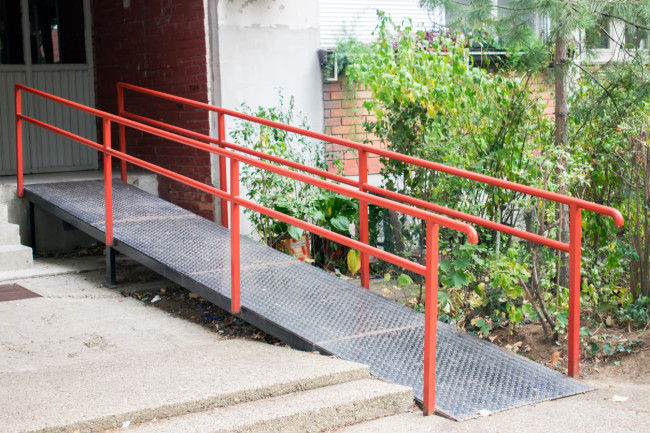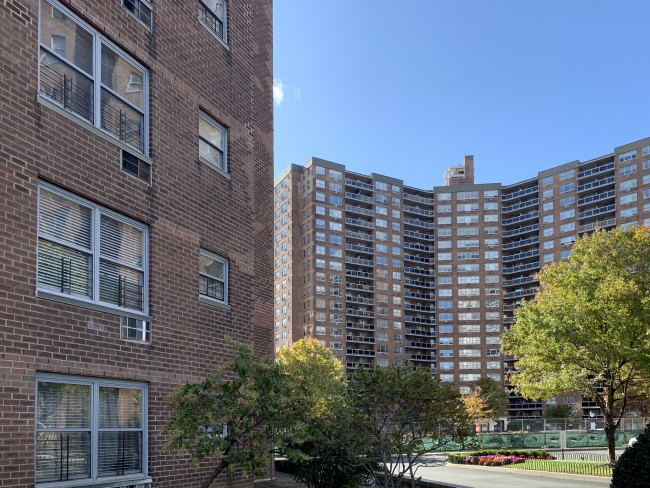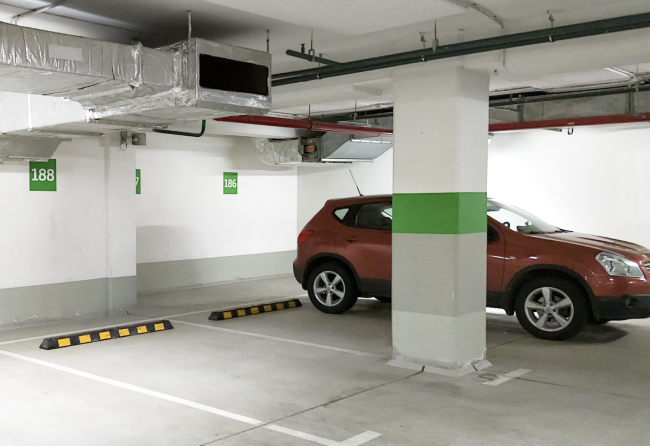How do I ask my board for a closer parking spot to accommodate my disability?
- You should first request a reasonable accommodation from your board politely in writing via certified mail
- If your board doesn’t meet your needs, you can file a complaint with a city or state human rights agency

Both landlords and boards need to provide “reasonable accommodations” to residents with disabilities, but that doesn't necessarily mean you'll get a prime parking spot.
iStock
How do I ask my board for a parking space at our building’s garage if my mobility is impaired and I need to park closer to my building’s entrance? We don’t have assigned spaces.
Boards are required to accommodate residents with disabilities under the New York City Human Rights Law, but that doesn't necessarily mean you'll get a prime parking spot, according to our experts.
Before you approach the board, you should make sure that it controls the parking facility so that it is able to grant your request. Your building’s parking spaces could be owned by individual residents outright or through a shareholder’s proprietary lease in a co-op, which would be outside of the board’s control, says Marc Landis, managing partner at law firm Phillips Nizer.
If your board does control the parking facility, read on for three steps to take when asking your board for an accommodation.
Get a letter from your physician
Your board may ask you for documentation to support the fact that you need a closer parking space, so make sure you’re in contact with your doctor.
“This is not the time to skimp on information,” says Bruce Cholst, a partner at Herrick Feinstein. “Ask for a detailed doctor's letter to back up the request. The doctor's letter should first state their medical credentials, and it should be a formal and substantive letter, not just a two sentence letter.”
It’s not necessary to provide your board with documentation at the outset, but it can be helpful to have ready if they ask for it, said John Herrion, the director of disability rights at the New York State Division of Human Rights.
Send a letter to your board
Once you have your documentation ready, Cholst recommends sending a letter to your board asking for a “reasonable accommodation” for your disability. Boards can get defensive, so it’s best to take a very polite tone, Cholst adds.
“You don't want to put the board on the defensive at this stage,” Cholst says. “The board just needs the facts.”
You should make your request by certified mail, so you can begin to establish a paper trail if your board refuses to grant you an accommodation, Cholst adds.
What solutions you can expect
Both landlords and boards need to provide “reasonable accommodations” to residents who need them, including for those who need more accessible parking under the New York State Human Rights Law. Most boards try to accommodate residents who request a more accessible spot, says Dean Roberts, an attorney at Norris McLaughlin.
But a “reasonable accommodation” doesn’t necessarily mean you’ll be guaranteed the best spot in the building. Instead, you could just be bumped to the top of your building’s parking waiting list.
“If all the spots are taken we don't necessarily remove somebody from a spot but we'd put the person with a disability on the top of the waiting list so if a spot became available they would have first crack,” Herrion says.
If your board doesn’t meet your needs
If your board doesn’t give you an accommodation, Cholst recommends sending a courteous letter asking them to reconsider your request and laying out your options if they again decline: filing a complaint with the New York City Commission on Human Rights, the New York State Division of Human Rights, or filing a lawsuit.
Litigation can get complicated—particularly when it's against your neighbors—so you may want to approach the city or state agency before taking more drastic steps.
You can file a complaint with the state Division of Human rights online or with the city’s commission through its website, or by calling 311 or (212) 416-0197 and asking for the NYC Commission on Human Rights. Make sure to only file your complaint with one agency or the other, as the city commission cannot accept complaints already filed with the state division.
Parking complaints tend to be fairly rare at the state Division of Human Rights, but reports of disability discrimination are commonplace, Herrion says. Just in the 2023 fiscal year, the state agency received 637 housing complaints, more than half of which included allegations of disability discrimination, according to the agency.
Both bodies would then investigate your complaint, and if they find that your allegations are credible, they would hold a hearing. The state Division of Human Rights can issue remedies like providing a parking space or fair housing training for your building property manager if they had denied your request, Herrion says.
Trouble at home? Get your NYC apartment-dweller questions answered by an expert. Send your questions to [email protected].
You Might Also Like



























